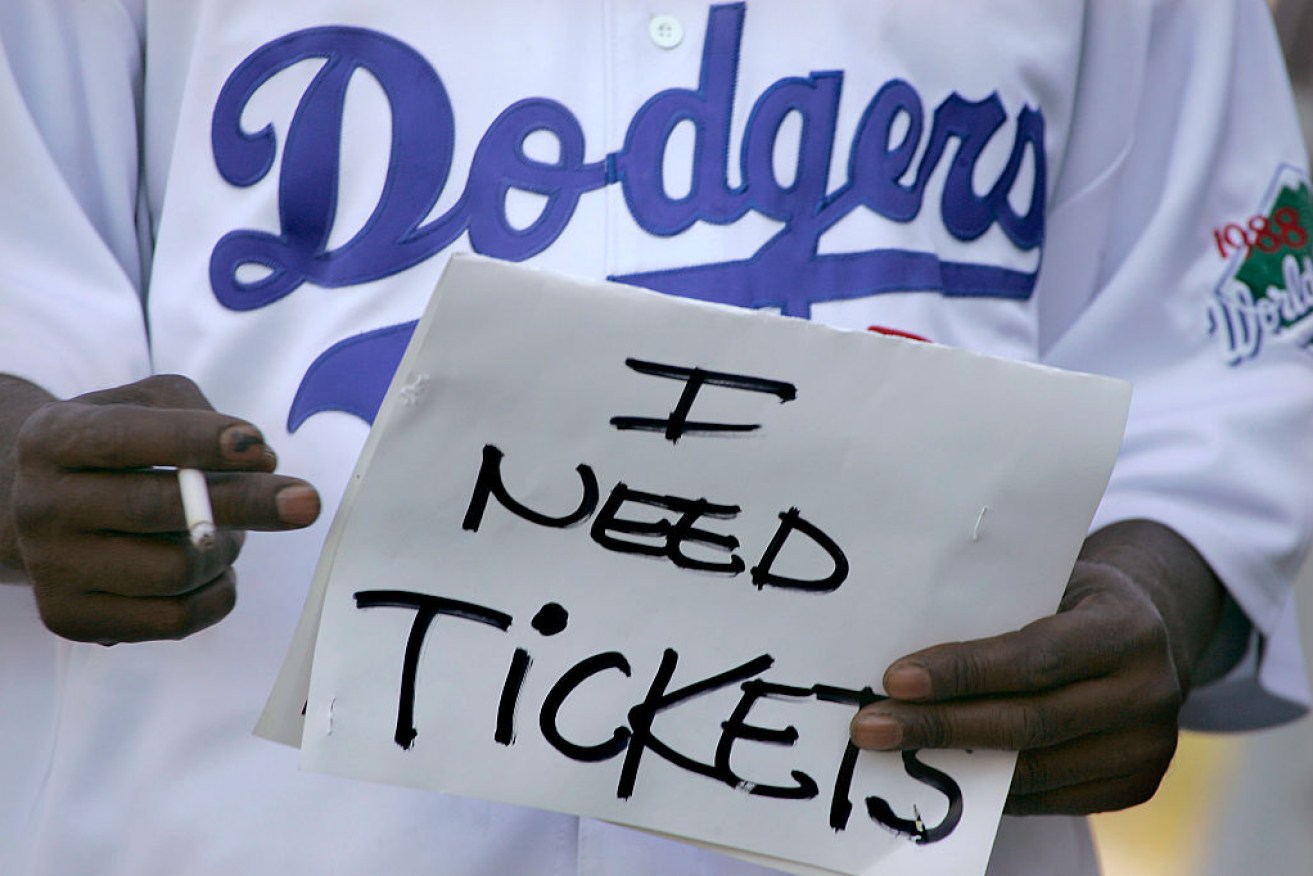Why ticket scalping sites are good for us all


Getty
If you want tickets to see 1980s British act The Cure play in Australia, your only option is using ticket resale sites where scalping is now basically legal.
And the biggest fish in the scalping sea is none other than Ticketmaster itself. It has recently raised the prominence of its own ticket resale site, where tickets to the original goths of pop are changing hands for over $450 each.
• The Monkees’ comeback album scores rave reviews
• Dami Im set to cash in from Eurovision turn
• Eagles of Death Metal shunned in France
Ticketmaster says it “is a platform for individuals to list their unwanted tickets at a price that they choose … many tickets sell at face value, or sometimes even below the original price”.

Click to enlarge.
The scalpel cuts all
It is not just famous acts like The Cure. Aussie band The Beards have sold out a show at the Corner Hotel in Melbourne’s Richmond on a Saturday night in June.
But tickets are now advertised at up to $138 each on the Ticketmaster resale site. (Mind you, you can still see the Beards play the same pub on the Sunday night for $33, if you buy direct.)
Ticketmaster is also reselling AFL, the Socceroos, ice hockey, visiting English football teams, live comedy, musicals, plays and Disney on Ice.
Tickets are changing hands faster than ever before on the internet, with prices in some cases ending up many times their face value.
But before you get angry, wait. It’s great news.

There is plenty for sports fans.
Ticketmaster’s Resale site still shows signs of its old fat-cat ways as selling tickets twice means they can charge their fees twice (for example, $17.90 to send you the resold tickets via the post!).
But as the ticket resale market goes mainstream, smaller, leaner websites should rise up, inject a bit of competitive spirit and take the market away with cheaper prices.
But what about the fans?
Scalping is good for fans. Sure, you get the occasional article where people complain about inflated prices, like this one where a fan is upset that he paid $142 to go to a football match.
But nobody made him buy that luxury good. And that’s what a popular, sold-out event is – a luxury in short supply. Not unlike a diamond or a lobster. Most shows don’t sell out.
Scalping should only lead to higher prices if there is a sell-out. After any scalping event you hear people say scalpers are making the true fans miss out.
Actually, the limited number of tickets is what made people miss out and the scalpers are just moving tickets to those who will pay the most for them.
That is the basic way our economy works – that things go to whoever is willing to pay the most for them.

Scalping is commonplace in the USA. Photo: Getty
We make exceptions for things like school and water and electricity where everyone gets access. You could try to argue going to a sold-out concert is a fundamental right too, but most people would laugh.
Because most events don’t sell out, scalping can actually be a godsend.
In the USA, a common way for sports tickets to be sold is that the home team sells season tickets, and the fans who bought them use the scalping websites to sell access to the games they don’t want to attend.
On my last holiday to the US I was able to attend an NBA game for $10, sitting high up in the stands near large groups of kids and big families – the exact people who find it difficult to afford to go to team sports under our old rules where ticket prices are crazy high.
A market that allows tickets to be sold cheaply can mean you actually get bums on seats. That’s great for sports matches that would otherwise have had no atmosphere and for gigs that would otherwise have had embarrassingly small crowds.
That’s the kind of outcome that can happen if we go down the scalping path – so long as we don’t let one or two big companies dominate.
Jason Murphy is an economist and journalist who has worked at Federal Treasury and the Australian Financial Review. His Twitter handle is @jasemurphy and he blogs about economics at Thomas The Think Engine.








